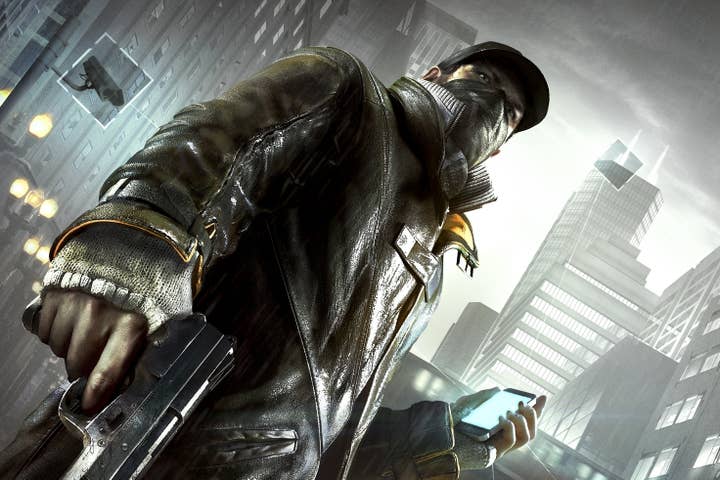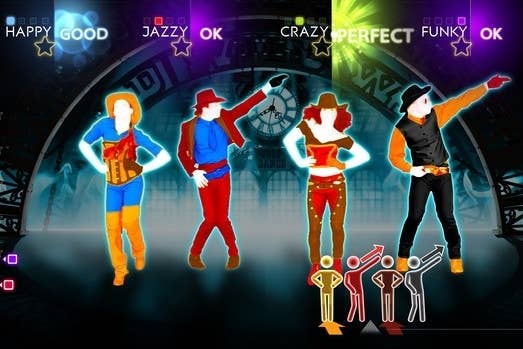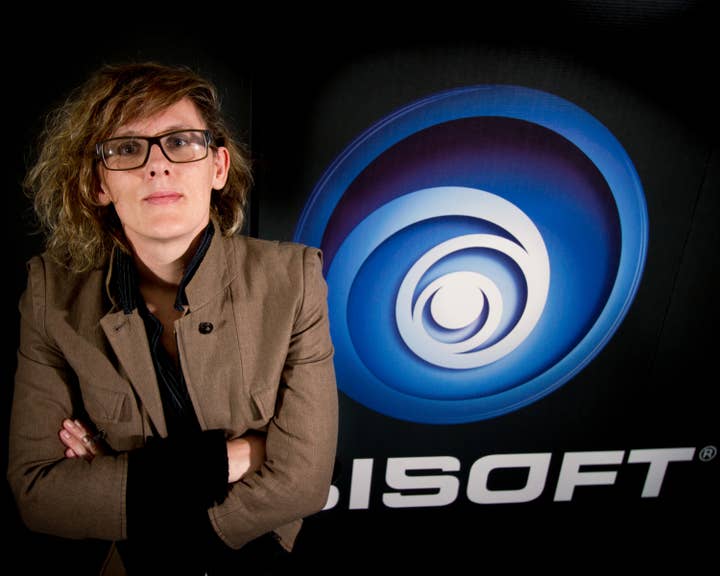On Reflections: First interview with the Ubisoft studio's new MD
Pauline Jacquey on how she intends to bring the UK studio into the limelight
Pauline Jacquey is a woman who likes games, loves to travel, and who once mischievously lied to an interviewer about collecting octopi. She also just happens to be the new managing director of Ubisoft Reflections, the Newcastle based development studio responsible for Driver and Just Dance, and currently working on Watch Dogs.
She spoke exclusively to GamesIndustry International about her plans for the studio, the excitement of working on a new IP for PlayStation 4, and what her time at Ubisoft has taught her about the industry.
The culture is really good. The DNA of the company is that we're a bit the underdog, ten years ago people were laughing at us in big retail in the US. And we're not arrogant, I think we're very humble in the way that we do things, and we like to take risks. The CEO of the company is really really great in pushing us to take risks.
It's OK to fail and make mistakes, and you can do it again and again. I failed two big games, I probably lost €10 million between these two productions, but it's OK because I did other things that went better. There's a lot of forgiveness, a lot of openness, and I like this.
That's the beauty of having seen so many studios, it's as if I had worked with ten different companies. I believe I have a good baggage of best practices that are not just all coming from France and Montreal. Some are coming from China, some are coming from India, so I'm currently trained to deploy different practices. It can be related to the culture of the studio, it can be related to methodologies, development processes or creation management.
And since I was [with Ubisoft] for a very long time, I participated in the creation of what we call the Stage Gate process, that's our internal development process. It's very well documented and very interesting, because it allows risk but it's still controlling production. It's something I know by heart because I participated in creating it so it's something I can use now in any production.
A lot of my job today in Reflections is informing, sharing information, sharing best practices and mentoring the producers and the leads, people I work with, and to give them the best of Ubisoft. But not everything, not everything is good in Ubisoft, I'm just trying to filter and just give what's best.
"Reflections can succeed in any kind of condition, so there's a lot of courage in the studio, and I like this. They're not spoiled"
It's a beautiful studio with a lot of legacy, 28 years, survived a lot crises, was acquired, re-acquired, so I think the first thing that struck me was the adaptability. They can succeed in any kind of condition, so there's a lot of courage in the studio, and I like this. They're not spoiled, so that's really good.
And the second thing I really enjoyed was that the programmers, the tech, are very senior but very creative at the same time. Sometimes with 10, 15, 20 years of experience you kind of settle down and just do your job, but that's not what I feel here. I feel like there's a lot of desire to create great things for the future, and I see this in initiative. They pitch me stuff, they show me stuff, they're very excited to show me, so that's really cool.
This is exactly why we're talking. We had a major change of strategy in the past year and we're now working on a non-driving game, so that's a big change for the studio. It again shows the adaptability of the studio, that the guys embraced the change without fear, they did it and it's a success now so it's a different image, a different culture for the studio that is bubbling right now.
And me coming in with a vast Ubisoft background, I don't think it will change the identity but I think maybe highlight different strengths in the studio and make them proud of what they do and be happy and working on cool, AAA games. I'm not quiet and I'm not shy, probably that will affect the studio.

Yes. We do parts of games, but it's very actually standard at Ubisoft now to do AAA games, like for the new PS4 console, you need teams of up to 600 guys so you can't do it at just one site. So there's organisation within Ubisoft to make sure that collaboration happens and works. So it's not like outsourcing, it's real co-development and collaboration and I think both sides learn a lot from working together. So I want this to be a very strong pillar of the studio, but yes, I want us to do our own games and I'm very interested in the evolution of the industry like free-to-play and digital and mobile. And that's something that I did already, in the past. Not very famous games, but still millions of players. So I don't know exactly which shape it could take, I've only been here for three months, but my intention is to have a very varied portfolio and collaboration will not just be what we do.
We already have interesting technology that we develop for the group that's linked to what we did in the past, driving. It's really cool, I think it's in the top technology you have at Ubisoft. And we have collaboration but we are already doing our own thing, but I can't talk about it.
I think that's the beauty of being being supported by a group as big as Ubisoft. Honestly I don't have to worry about the future of the studio, it's good. So I only have to worry about the skill sets of my guys, my strategy, the way I'm going to deploy this.
So to make sure we are future proof, again, Ubisoft DNA is about sharing knowledge so that means I'm in touch on a constant basis with Montreal for instance, and other studios, that receive the development kits a week before the others so have more information. We have numerous share points and collaborative tools so that we have our own internal Facebook and internal messaging system so that we can share videos and bits of code. There's a lot of sharing internally, so I think it means that we are always up to date with the best ones inside the studio.
And then of course there's research and development, we've seen the evolution of generations of consoles in the past so we can anticipate a bit what is going on, we see mobile and smartphones and nobody is stupid - we know that is going to be part of the strategies of the consoles in the future, of course, so just be curious, be aware, be open to what's going on, and make your own decisions.
Not at all. I know that's something special compared to other companies, there's one rule for instance at Ubisoft - we can't sell anything between studios. If you develop a bit of technology that's amazing you're allowed to ship it for your first game, but then you have to share it. And you can't say no, and you can't ask for money for it, you can't ask anything for it. Everything is centralised with a group called the technology group, their work is to keep integrating the innovations and making them available with everybody else. You can't just decide innovation, it's not like a group of people knows everything, so it's many things.
"If you develop a bit of technology that's amazing you're allowed to ship it for your first game, but then you have to share it"
That's actually exactly my challenge right now, I have to hire 50 people to make sure that I cover all my needs and that's my biggest challenge today. We're looking for a very specific profile that's not easy to find anywhere in Ubisoft. Specialities are very hard to find, and it's hard to find everywhere. But for instance I just managed to have a team of ten guys in Barcelona that are going to work with us, so the international collaboration is happening at all levels.
With the size of the teams it's more about expertise rather than generalism. My first game, 16 years ago, it would be the same artist who created the texture, was lighting the level (and he would have one light per level) and doing the effects, just one guy. Today you would have two lighters, one for interiors, one for exteriors, and then one guy is in charge of the sun, so it's more and more expertise, and the speciality, that's hard to find. So I would say generalism for most of the staff, for junior and for intermediate guys, and then for senior staff it's usually very very specialist, they have a precise discipline.
It's not the biggest hub I've seen but it's a very decent one, so we have link with universities, Teeside University for instance has provided a very good game artist and there's some really good engineering universities as well. We have Eutechnyx across the river and we have CCP, around five to ten small studios and three or four big ones. It's a good area to develop games.
Attracting them? The games. We're working on Watch Dogs, in the past we worked with Just Dance and those are majorly successful games. And that's very good quality too, it's not just a commercial success it's high quality and people love it, and I think that's the biggest attraction we can give. And the city is really cool. Usually when people hear about Newcastle they may not have the right image but then they come and the people are so lovely and warm - that's what happened to me, so I can say that.
And then in terms of retention I think it's a lot to do with the culture. We are very demanding with our own ethics, our own way of dealing with HR and with the culture of our company.
If people knew that we were developing Watch Dogs at Reflections then yes. I'm not sure that a lot of people know. The guys we talk with, when we're looking at candidates to hire them, they're really really surprised that we would work on this game and they're very happy to come and work on it.
We have a team of almost 90 guys working on Watch Dogs, so one third of the team is in the UK.
No, we did not. No. It was very very secretive. I'm guessing some people knew more than I did but I tried to look for a lot of information, nothing leaked.
Yesterday the producer of Watch Dogs here in Reflections called out everyone in the studio, we showed the demo video, I made a small motivational speech, so it's an event for us as well. We're very proud, it's the first time in four years we're showing something at E3 and one of the pieces of content we're working on in Newcastle will be shown at E3, so it's very cool.

Totally. We actually started making simulations three years ago on next-gen because we knew that it would require probably a multiplication of data by two or four, meaning bigger teams. But it depends on the type of thing that you do, there are games that Ubisoft specialises in like open world action games with a lot of production value, and you do need a team of 400 to 600 people, that's a lot, and next-gen is increasing this. And then some systemic games you can probably afford to do a next-gen game with 100 people. Ubisoft are very generous with resources, making sure product quality is top notch, so it's got a big influence on budget. But then the outcome, the production revenue, should be much higher as well so it balances. It's just the risk is higher, so if we miss it once or twice the impact is big.
It does, except that this is not a surprise. Everybody in the senior management in Ubisoft probably guessed three or four years ago, seeing the success of iPhone and Facebook and Twitter ecetera that we needed to incorporate this in our designs. Young players today who are 18 years old, they were born with Facebook, and I'm very sure that the neuro connections in their brain are different because of this. And plus it's fun, you can be in touch with your friends.
I've shipped two Facebook games. It's not what I want to do in the future but I'm sure that I'm taking the best of Facebook games into the games that I'm producing right now. So not a surprise, we were waiting for something like this to take shape, we knew that social communities and sharing was very important in next-gen.
Jacquey will be just one of the speakers at GamesIndustry International's own GameHorizon conference in Newcastle, which starts on May 8.

